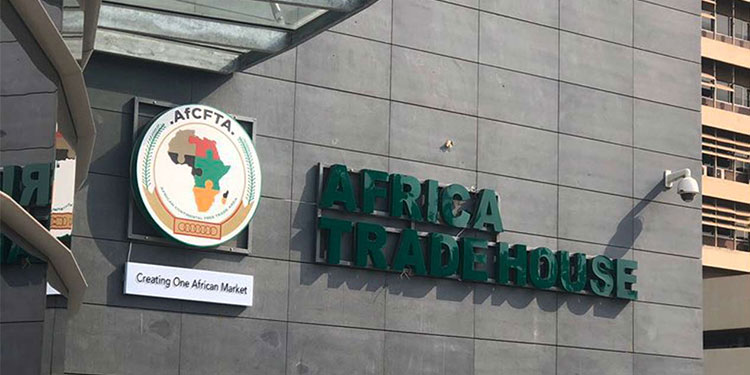
The AfCFTA facilitates commerce between African nations by opening up new export prospects for their goods to be exchanged without the imposition of tariffs or other barriers, resulting in enhanced access to the largest market area and, eventually, sustained economic growth.
The upcoming operation of the continental trading as a venue for fostering and enhancing links between business groups emphasises how ready the business environment is and its importance to the growth of Africa.
The African Continental Free Trade Area (AfCFTA), which will shortly begin trade, has chosen roughly eight African nations, including Cameroon, Egypt, Ghana, Kenya, Mauritius, Rwanda, Tanzania, and Tunisia. The action is a component of efforts to industrialise the continent and achieve economic independence while diversifying and increasing exports among African nations through Export Trading Companies (ETCs).
At a seminar in Accra, Ghana, to educate African nations on the role of ETCs in facilitating intra-African trade under the AfCFTA, Herbert Krapa, Deputy Minister of Trade and Industry (MoTI), stated that the Secretariat had started the AfCFTA Initiative on Guided Trade to put all the progress on paper into practise in order to make the industrial revolution and the continent’s capacity for self-reliance attainable.
“The dream of our ancestors will come true in the upcoming weeks. If we make the right investments into ETCs, trading goods and services from Harare in Bamako or Kigali, or exporting processed cocoa from Accra to the entire northern African region, shouldn’t be a nightmare any longer, Krapa said.
According to the Deputy Minister, ETCs would ensure that no one in Africa was left behind in the regional value chain, notably small and medium-sized firms (SMEs), young entrepreneurs, startups, light manufacturers, and large industries. These value-chain participants will offer the warehousing, shipping, finance, insurance, risk management, and market intelligence necessary for the free trade area to function. They will also provide export and import services.
Encouraging governments and members of the business sector to have the relevant institutional structure, financial resources, infrastructure, and productive capability in order to profit from what the AfCFTA offered. African nations, government organisations, exporters, finance companies, manufacturers, SMEs, and everyone else in the export ecosystem, must pursue industrialization and independence in light of the present developments in the global economy. Africa must at all costs realise the envisaged industrial revolution.
Nigerian President Muhammadu Buhari noted: “Africa starts a joint journey towards common economic success” as he took the stage at the Intra-African Trade Fair. We can’t get there by just talking to each other. If the public and commercial sectors work together, the implementation, the challenging trip, and the challenges are overcomeable. Governments must assist local business owners in the public sector to increase scale and productivity.
The African Continental Free Trade Area, he continued, “must work to ensure that Africa becomes a marketplace where no country is left behind, create jobs, and increase income for all parties.”
African nations that start trading will thereby highlight the benefits and strengths of the AfCFTA. For international investors in Africa, it is the perfect place to make investments. In actuality, it strives to establish a free-flowing business environment and a market for products and services across Africa. Access to an integrated African market with approximately 1.3 billion people is made possible by the African Continental Free Trade Area (AfCFTA).
